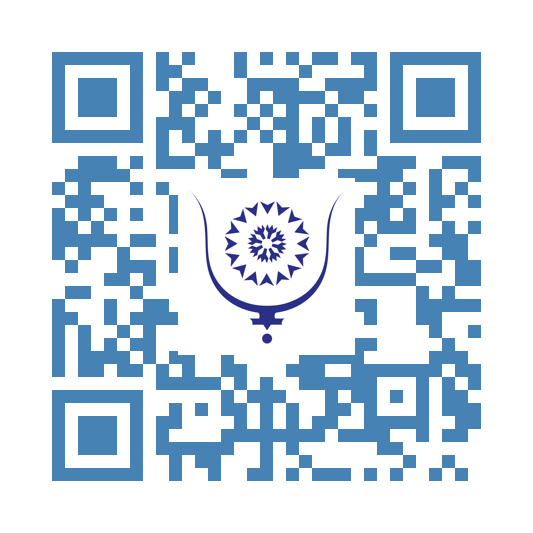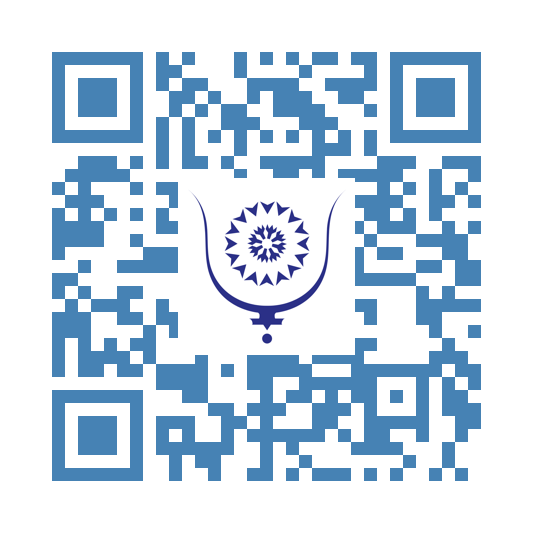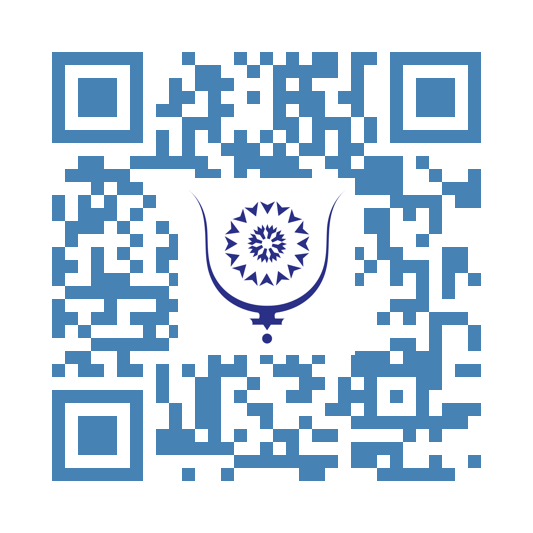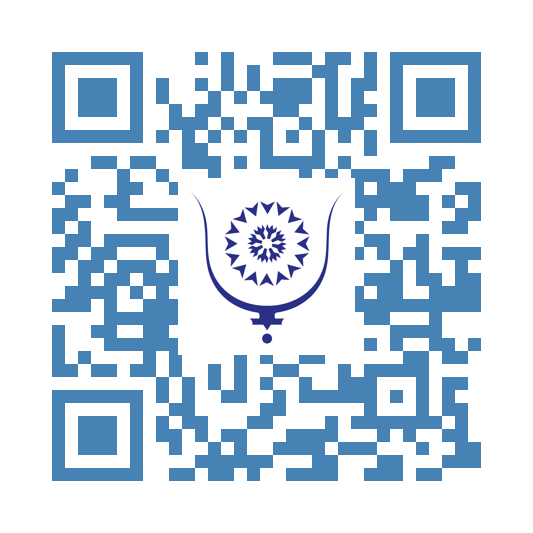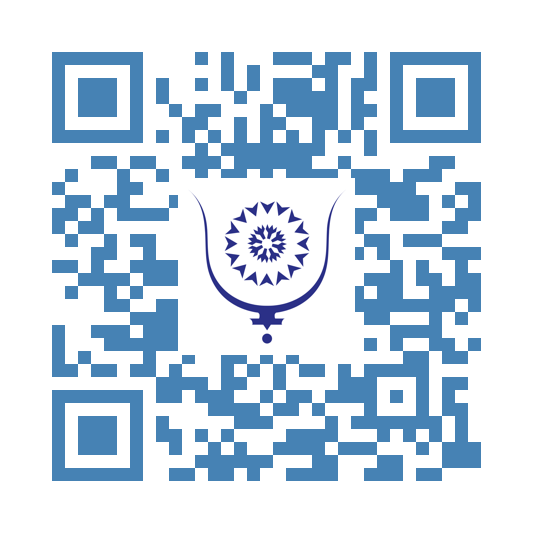N’Djamena-Kousséri Half Marathon: A Message for the UN and Everyone Working for Peace in the World
199
Next September, more precisely on the 6th, an exceptional half marathon race will bring together the people of Kousséri, Cameroon, and N'Djamena, the capital of Chad. The athletes will start in front of the N’Djamena city hall and head towards Kousséri’s town hall, crossing the border between the two countries without any customs checkpoint or stop. On the contrary, authorities from both countries are collaborating to ensure that runners are supervised and secured on both sides under the best possible conditions. This will already be the third edition of this unprecedented race.
This sporting event, largely sponsored by the African Athletics Confederation, goes beyond simple competition: it embodies a powerful symbol of rapprochement and reunification of the peoples of Central Africa, highlighting the deep human dimension of such an initiative. Indeed, the populations on both sides of the border share so much in common that this administrative boundary, a colonial legacy, cannot separate them.
The strength of sport as a vector of unity is a slogan and a value we repeat on every occasion. But how many sporting events can truly embody it on the same scale as this unique race in the world?
Sport, by its universal nature, has the rare power to transcend cultural, political, and social barriers. But here, this is the only sporting event where it transcends borders.
In the border region between Cameroon and Chad, it is actually one and the same people who live here. Circumstances have made them two populations belonging to two different countries. On both sides of the border, people share history, traditions, and common challenges. In this context, which is not unique to this central African region, this half marathon represents far more than a simple endurance challenge. It is a bridge between communities often separated by artificial borders inherited from the colonial past.
Running together, across spaces that connect these two neighboring cities, symbolizes the will to overcome historical divisions. Every step is an invitation to solidarity, mutual understanding, and the celebration of shared values such as respect, brotherhood, and peace.
Kousséri and N'Djamena, though geographically close, have often been distanced by political tensions or administrative differences. But on the ground, in the heart of this race, the differences fade away. Runners, whether amateurs or professionals, from here or abroad since the race is international, share the same goal: moving forward together.
This sporting initiative also allows the meeting of communities, families, youth, local leaders, and institutional actors from both countries. It encourages cultural, economic, and social exchanges, paving the way for more sustainable partnerships and regional stability.
Here is a genuine message of hope for peace and reconciliation that the UN should hold up as an example, especially in the face of those who waste fortunes on endless conflicts. Examples are abundant...
The Kousséri-N'Djamena half marathon sends a clear and inspiring message: despite borders and differences, it is possible to build human bridges, consolidate lasting peace based on mutual understanding and cooperation.
In a world where ethnic and political conflicts often divide peoples, these moments of sporting gathering illustrate the power of dialogue and reconciliation. They express deep humanism, where each step taken on the ground is a step toward fraternization, toward rapprochement, toward a shared future.
Beyond athletic performance, the half marathon between Kousséri and N'Djamena on September 6th is a true celebration of human unity. By bringing together peoples with close origins yet sometimes divided, it invites reflection on our ability to overcome the borders that separate us to prioritize what should unite us: brotherhood, peace, and hope for a better world.
**The Human Dimension of Rapprochement and Reunification of Peoples finds a true embodiment in the N’Djamena-Kousséri Half Marathon, Bridge of Hope.**
For those who understand, greetings.
Share:
N’Djamena-Kousséri Half Marathon: A Message for the UN and Everyone Working for Peace in the World
copy:
https://bluwr.com/p/343913187
Ley Lines: The Invisible Currents of Earth’s Sacred Geometry
356
The concept of ley lines suggest the existence of invisible pathways of energy that crisscross the Earth, forming a network of subtle energy, ancient alignment, and spiritual resonance. Though the term “ley line” was first coined in 1921 by the English antiquarian Alfred Watkins (1855-1935)—who noticed that many ancient sites in the British landscape aligned along straight tracks—the concept is even older, echoing geomantic traditions across cultures that recognized the Earth as a living, breathing being with its own circulatory system of sacred force.
Basically, ley lines are believed to be channels of Earth's energy—similar to meridians in Traditional Chinese Medicine (TCM)—which connect sites of spiritual, astronomical, and historical significance. These may include standing stones, megalithic temples, pyramids, cathedrals, burial mounds, and crossroads. In the East, these currents are known as dragon lines or "lung mei" in Chinese geomancy (feng shui), while in South America, the Inca referred to similar energetic pathways as "ceques", radiating outward from the Coricancha Temple in Cusco.
From an esoteric standpoint, ley lines are neither arbitrary nor merely symbolic. They are understood to follow the electromagnetic shape of the planet—interacting with telluric currents, magnetic anomalies, and planetary grid systems. At certain points where multiple ley lines intersect, energy becomes concentrated, forming what are known as power nodes or vortex points. These nodes are believed to amplify consciousness, enhance ritual, facilitate spiritual contact, and sometimes thin the veil between the seen and unseen worlds. Places such as Stonehenge, the Giza Plateau, Machu Picchu, Glastonbury Tor, and Mount Shasta are frequently cited as residing on these potent intersections.
Mystically, ley lines represent more than geological curiosity—they are conduits of planetary consciousness, arteries of Gaia herself. In Hermetic and occult traditions, the Earth is viewed as a macrocosmic body, complete with chakras, nadis, and energetic organs. Just as the human body channels prana through subtle pathways, so too does the Earth transmit vital energy through her leys. To walk these lines consciously, or to work magically upon them, is to participate in the planet’s own alchemical process—aligning human intention with terrestrial intelligence.
In this context, the concept of ley lines resonates with the Gaia Theory, proposed by James Lovelock (1919–2022) and Lynn Margulis (1938–2011). This theory pictures Earth as a self-regulating, living system in which the biosphere, atmosphere, geosphere, and hydrosphere are deeply interconnected. Just as Gaia Theory suggests that the planet maintains balance through feedback loops, ley lines can be seen as subtle energetic channels through which this regulation occurs. From an esoteric perspective, these currents mirror Gaia’s own physiological processes—arteries circulating life-force and sustaining the interdependence of all beings within the planetary organism.
Many practitioners of geomancy, dowsing, and ritual magick believe that ley lines can be activated or aligned through offerings, ceremonies, sound, and sacred architecture. Temples and churches built upon these lines often reflect celestial alignments, forming a harmony between heaven and earth. Some traditions hold that ancient initiates placed monuments at ley crossings not merely as markers, but as resonant structures designed to stabilize or modulate the flow of planetary energy.
There is also a mythical and cosmological layer to ley line theory. In Arthurian legends, Glastonbury is not only a place on a map but a threshold to Avalon—an invisible world accessible through altered states or alignment with the land’s living current. In this way, ley lines serve as the nervous system of a planetary intelligence, a kind of spiritual cartography through which initiates navigate both terrestrial and cosmic realities.
Though scientific consensus does not validate ley lines as measurable phenomena, their enduring presence in sacred geography, myth, and ritual suggests they function on a level beyond conventional empiricism. They invite the sensitive and the intuitive to perceive the Earth not as inert matter, but as a divine organism—alive, aware, and in communion with those who learn to walk her lines in reverence.
Share:
Ley Lines: The Invisible Currents of Earth’s Sacred Geometry
copy:
https://bluwr.com/p/341332064
Legislative Elections 2026 in Morocco: A Democratic Challenge Driven by Royal Initiative
467
His Majesty King Mohammed VI has officially tasked the Ministry of the Interior with preparing the 2026 legislative elections. This decision, announced in the 26th Throne Speech, represents both a solemn directive and a particular vote of confidence in the ministry. By the end of the year, the ministry is expected to have finalized the legal and organizational framework for the election.
Following this, Mr. Abdelouafi Laftit convened the main political parties for inclusive consultations aiming to guarantee a "model," transparent, and credible election, in accordance with royal instructions. This approach reflects a clear desire to strengthen the organization of elections by removing them from the direct influence of the government, particularly its head, Mr. Aziz Akhannouch, who is also president of the RNI party. This party is seen as having significant influence over the electoral process. Entrusting this mission to the Ministry of the Interior, recognized for its role as an institutional arbiter, aims to limit direct political interference and prevent any attempt to capture the vote by certain actors in power.
During the meeting, the minister emphasized the necessity for the elections to be "exemplary" and suggested that significant effort would be made to meet democratic and institutional expectations—implying that everything will be done to strictly implement the royal will, while distancing from all political factions.
A new electoral code specific to the House of Representatives is therefore being prepared, with an adoption planned before the end of 2025. The ongoing reflections and discussions address several key areas: updating or simplifying voter lists, with reliance solely on identity cards to identify voters; the moralization and regulation of campaign financing through stronger control, possibly including caps on candidate and party spending. Better transparency and a review of electoral districts based on the latest census are also on the agenda. The issue of the number of polling stations—which exceeded 40,000 in the last election—should also be discussed, as well as the representation of approximately 6 million Moroccans living abroad.
The current voting system, based on proportional representation by lists, could also be reconsidered to address shortcomings observed in 2021, particularly the tendency to favor "kingmakers" of deputies and local clientelism, often fueled by money.
Within the political sphere, there is rather a radio silence. The impression is that political parties are either indifferent or strategically cautious. The debate and torrent of ideas are thus taking place among commentators and other writers. There is a shared feeling that things must change if political life is to regain meaning. This is what His Majesty desires.
The introduction of a two-round single-member district voting system is one frequently cited idea as a possible way to reduce the influence of money and traditional networks of power. This voting method, never experimented with in Morocco, would favor a vote focused more on individuals than on party lists, thus strengthening democracy through better citizen mobilization and greater representativeness. So far, citizens have often been surprised by unnatural alliances formed after the vote, leaving voters without control over the final configuration. The two-round system has the advantage that any negotiation or alliance between parties occurs between the two rounds, at a time when citizens can still intervene by casting a second vote.
This profound electoral reform could respond to a major challenge: citizens' disenchantment with politics, shown by high abstention rates, fueled by perceptions of insufficient renewal, party inefficiency, and therefore of elected bodies.
To succeed, reform must go hand in hand with efforts by parties to renew their approaches, attract youth seeking alternatives, and rekindle popular interest in voting.
Moroccan political parties have historically had an ambiguous relationship with voters beyond their traditional bases. They even seem to discourage mass participation in the electoral process, fearing that their often small membership, relative to the statutory electorate, would be diluted. The PJD came to power with only 1.3 million votes, about one-tenth of potential voters. Some parties hold parliamentary groups despite having obtained only around 200,000 votes or less.
Parties are sometimes seen as unrepresentative and tainted by corruption accusations. However, they have a pragmatic interest in mobilizing their core voters to retain their political weight and public funding.
The prospects for a dynamic electoral campaign today appear limited by a certain apathy among political actors, hindering the expected democratic momentum.
Regarding the two-round single-member vote, although it might structure the political landscape around two major poles and encourage clearer alliances, it alone cannot neutralize the influence of money, networks tied to local leaders, or clientelism. This system could even exacerbate artificial polarization, marginalize smaller parties, and allow hidden alliances between major parties, harming transparency and democratic legitimacy. Risks also remain concerning lower participation between rounds and the complexity of changing voter opinions, potentially opening the door to strategic manipulations. Thus, complementary reforms are essential, notably in campaign finance transparency, the moralization of the electoral process, and control over local clientelism, to guarantee fairer and more credible political competition.
The royal decision to entrust the Ministry of the Interior with election management, inclusive dialogue with parties, and the declared will to moralize the process demonstrate a strong ambition for profound reform toward a fairer, more equitable, and trustworthy election.
The voting system remains central to the debate, but the success of the 2026 legislative elections will also depend on the ability to reinvent an electoral and political system capable of mobilizing citizens and establishing trust in Moroccan democracy.
Citizens are also called upon to embrace greater honesty and responsibility.
Share:
Legislative Elections 2026 in Morocco: A Democratic Challenge Driven by Royal Initiative
copy:
https://bluwr.com/p/339214275
Ibtissam, please : Allah is Allah...
879
Recently, Ibtissam Lachgar, who calls herself an activist, wore a T-shirt of no value, except that she deliberately intended to insult millions of Moroccans and undoubtedly many believers, Muslim or not. God is the omniscient Creator, regardless of religion or rituals. Madam found it clever to display a T-shirt with a strange inscription, not at all amusing: an offense to the divinity.
No, madam, Allah is Eternal without beginning or end, beyond time. He is Almighty, and His power is infinite and absolute. He is Merciful, full of compassion and kindness towards human beings, including you.
What did you have for breakfast that morning, madam?
By this useless act, you seem to have forgotten that faith is also a fundamental right. Americans, whose modernity cannot be denied, claim it to the point of engraving it on their dollar bill. Belief in God, in Allah, is a fundamental, universal, immutable pillar. To say or imply mocking or even simply disrespectful words towards what is sacred in the collective consciousness is to hurt deep sensitivities. It is an affront to the spirituality of billions of people.
Yes, it is important to remind that everyone is free to live their life and love whom they want. However, there is one condition: not to unnecessarily offend others. Inventing an impromptu epithet for Allah goes far beyond personal debates linked to sexual orientation: it harms the deep faith of billions of people, including the 36 million Moroccans. This provocation cannot be considered a mere wit or a brave claim: it is a misstep that threatens harmony and social cohesion.
Indeed, God does not need anyone to defend Him, much less my humble self, but admit that God is everywhere, simply present in every believer outraged by your lowly stylized statement, which is not freedom of expression but a qualified insult. It is billions of believers you insult with your superfluous act.
Moroccans who strive to make their country a state of law also want social peace and cohesion to be fully preserved, within necessary limits to freedom of expression. This freedom can be neither absolute nor without red lines, and this is a genuine protection. Elsewhere, where the state is less protective, a provocation like yours would have caused far worse consequences for you.
My generation, and those that followed, have fought extensively for freedom, notably the freedom to express oneself, develop ideas, and help society evolve and emancipate within a civic framework. But madam, yes to freedom, but within respect for laws freely chosen by the majority. This is the foundation of democracy: adopting the will of the majority, even if very narrow. In 2011, it was broad enough to set supreme rules and strives to respect them at all costs.
You must understand that freedom does not mean unlimited license. Democracy is based on a constitution and laws adopted by the people themselves. These laws define what is acceptable in public space. Your supporters, Mrs. Lachgar, often foreigners or fringe elements, must understand that it is Moroccans who decide on their laws, according to their history, culture, and values. It is not up to minorities, even vocal ones, or foreigners to this secular context, to redefine the rules of coexistence in a sovereign country.
Yes, activism is vital and contributes to progress and the pushing of boundaries, but not sterile and counterproductive provocation such as you have just committed.
It is also fair to acknowledge that Morocco has tolerated peaceful advances in favor of sexual minorities. Some of your acquaintances know this well. Debates, demands, and defense of individual rights are permitted, within legal and social frameworks. But when a public figure—as you are with your MALI—takes a "step too far" with a shocking gesture against the very essence of religion, this constitutes an unnecessary provocation, all the more serious when occurring in a sensitive period. You are a declared repeat offender who has so far gotten away with it. This shows a tolerance, albeit relative, but tolerance nonetheless, towards movements as marginal as yours. Minorities have always existed and always will, but you should understand that cohesion is a heavy responsibility of the state, and it is unacceptable to play with such a sovereign prerogative with multiple facets.
Your arrest or administrative detention should not be seen solely as a sanction but rather as a protective measure. Would you have taken a few steps in public space with your T-shirt without becoming a target for a probable violent extremist, ready to resort to illegality? On the very day of your counterproductive gesture, police services uncovered yet another vehement extremist, ready according to his ideology to restore a "perfect world" where people like you have no place. It escapes you that Morocco firmly fights all forms of extremism, religious or ideological, and is an ideal target precisely because it accepts differences and diverse orientations, because it does its best to leave room and space for everyone. Freedom to think and live is precisely the opposite of extremism, whatever form it takes. Protecting social peace also means protecting those who sometimes unconsciously or knowingly contribute to destabilizing it, as you do.
You may not know, but in France, a mayor had to suspend the screening of the film "Barbie," which promotes homosexuality, under pressure from some inhabitants of his municipality. This shows that even further north, there are still hostile reactions to your orientations.
Morocco is a nation rooted in strong historical, cultural, and religious values, with certainly some hypocrisy. This is not a flaw but possibly a true asset. Individual freedom must be exercised within the framework of respect for democratically defined values and laws. Your mistake was to cross these boundaries, thus shaking one of the indisputable foundations of Moroccan identity.
It is up to everyone, Moroccans and residents, to respect the country's tranquility and allow everyone the freedom to live in peace, without provoking or dividing.
Share:
Ibtissam, please : Allah is Allah...
copy:
https://bluwr.com/p/336611398

